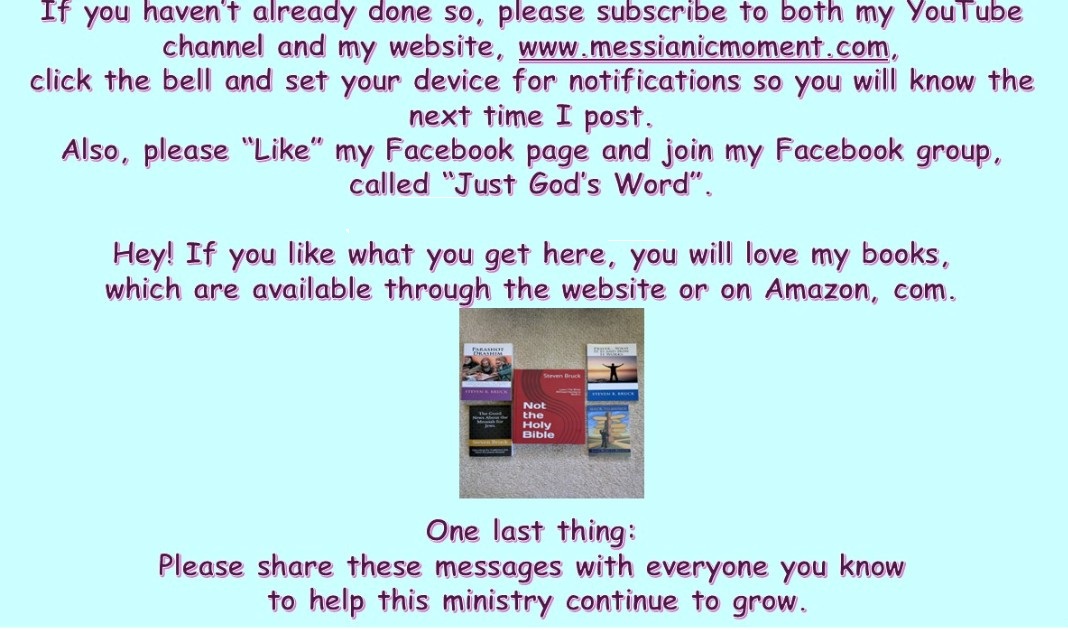First off, before we do anything else, let me wish you all a very joyous New Year.
However, to put it in perspective, let me also remind you that Rosh HaShanah is a man-made holiday; this is not a biblical new year. At some time in the past, the Rabbis of old decided to change this from Yom Teruah (Day of Trumpets), a memorial Holy Day, to celebrating a new year.
What we should be doing at this time is not celebrating but becoming more introspective. We are to review our actions over the past year and confess just how far we fell short of what God wanted us to be. Part of this introspective activity is to also reflect on who we have, or may have, sinned against in the past year and go to them to ask for forgiveness.
These are the Ten Days of Awe, and we should be preparing ourselves, both emotionally and spiritually, for Yom Kippur.
Okay, now let’s get to today’s lesson.
The Shema is the watchword of the Judaic faith, and is the foundation of Monotheism.
The last word, “echad“, is usually interpreted as “one”, but I believe there is a better way to interpret it.
If you prefer to watch a video, click on this link: Watch the video.

In the Hebrew language, he word echad is primarily understood as “one”, as in “ish ehcad” (one man). And this is how we generally translate the Shema:
“Shema Yisrael, Adonai Eloheinu, Adonai Echad”
“Hear, O Israel: the LORD is our God, the LORD is one”.
But echad also has a secondary usage, which can be interpreted as “alone” or “only”.
In that case, we would be saying, “The Lord is our God, the Lord, alone.”
Now, to me, that’s a BIG difference because all gods are one, when you think about it. Even in the Hindu religion, where they have some hundreds of gods, each one of their gods is a singularity.
Every god is “one”, isn’t it?
But when we say that Adonai is our God, Adonai alone aren’t we making a definitive statement that – for us- there is only one God… Adonai!
Yeah, many others have their god or gods, but we have only Adonai. He, alone, is our God.
Again, it may not make a lot of difference to many people, but to me it is such a stronger and more definitive statement of monotheism than just saying that our God is one.
I have been in different synagogues where most use echad as “one”, but there are some who are using echad as “alone”.
So, today we have a simple lesson about the use of a word in the most important prayer in Judaism, and how it can be understood in a different way.
Either way, whether you say “one” or “alone”, the Shema is the foundation stone of our monotheistic faith.
Thank you for being here and please remember to share these messages with everyone you know, even non-believers. Hey, after all, you never know how fertile the soil is until you plant a seed in it.
That’s it for today, so l’hitraot and Baruch HaShem!
